1. Introduction to the Cognitive Dimension
Learn about the hidden thinking behind expert decision making in Lesson One of the course. Dr. Gary Klein explains why understanding the invisible and often overlooked mental processes is crucial for solving complex problems and making tough decisions.
8 Lessons (65min)
- 1: Introduction to the Cognitive Dimension
- 2: Controlled Studies Inhibit Expertise
- 3: The War on Expertise
- 4: Seeing the Invisible
- 5: Is It Safe to Rely Solely on Evidence-Based Data?
- 6: Don’t Let the Data Mislead You
- 7: Mental Models and the Cognitive Dimension
- 8: Naturalistic Decision Making Tools for Discovering the Cognitive Dimension
The Cognitive Dimension
Dr. Gary Klein describes key strategies that underpin expert decision making as the Cognitive Dimension. Learn how you can use the Cognitive Dimension to help navigate complexity, build richer mental models, and make critical judgments under pressure.
8 Lessons (65min)
- 1: Introduction to the Cognitive Dimension
- 2: Controlled Studies Inhibit Expertise
- 3: The War on Expertise
- 4: Seeing the Invisible
- 5: Is It Safe to Rely Solely on Evidence-Based Data?
- 6: Don’t Let the Data Mislead You
- 7: Mental Models and the Cognitive Dimension
- 8: Naturalistic Decision Making Tools for Discovering the Cognitive Dimension
Lesson info
Learn about the hidden thinking behind expert decision making in Lesson One of the course. Dr. Gary Klein explains why understanding the invisible and often overlooked mental processes is crucial for solving complex problems and making tough decisions.
About this course
Course Description
Expertise is often treated as a mysterious concept – few can explain it, but you know when someone has it. Dr. Gary Klein, renowned cognitive psychologist and pioneer in the field of naturalistic decision making, has devoted the last 35 years to understanding what makes experts so capable of making timely and accurate assessments.
In this course, Dr. Klein introduces the concept of the Cognitive Dimension: the hidden layer of awareness that underpins effective decisions, accurate sensemaking, and increased adaptability. Learners will explore eight video-based lessons that leverage real-world examples designed to build skills and knowledge associated with the cognitive dimension. After participating in this course, you will have a much deeper understanding of the skills, strategies, and techniques that experts use to make sense of their instincts.
This course includes:
- 65 minutes of self-paced, standalone, video-based lessons
- Downloadable transcripts, presentation slides, and related articles
- 18-question comprehension quiz
- Certificate of completion (Requires a passing score of 80% or higher on the comprehension quiz)
Browse Lessons
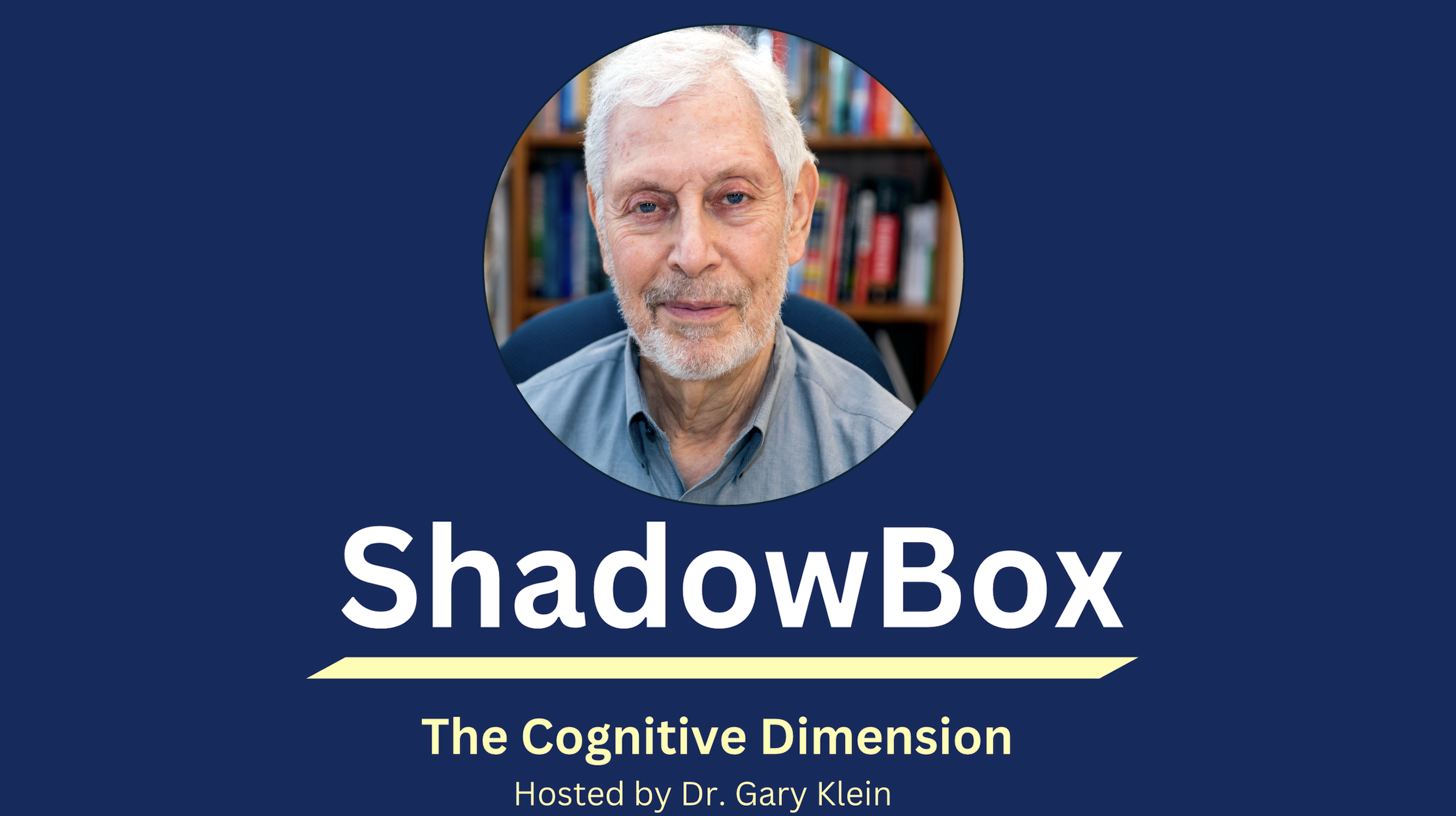
Lesson 1: Introduction to the Cognitive Dimension
Learn about the hidden thinking behind expert decision making in Lesson One of the course. Dr. Gary Klein explains why understanding the invisible and often overlooked mental processes is crucial for solving complex problems and making tough decisions.
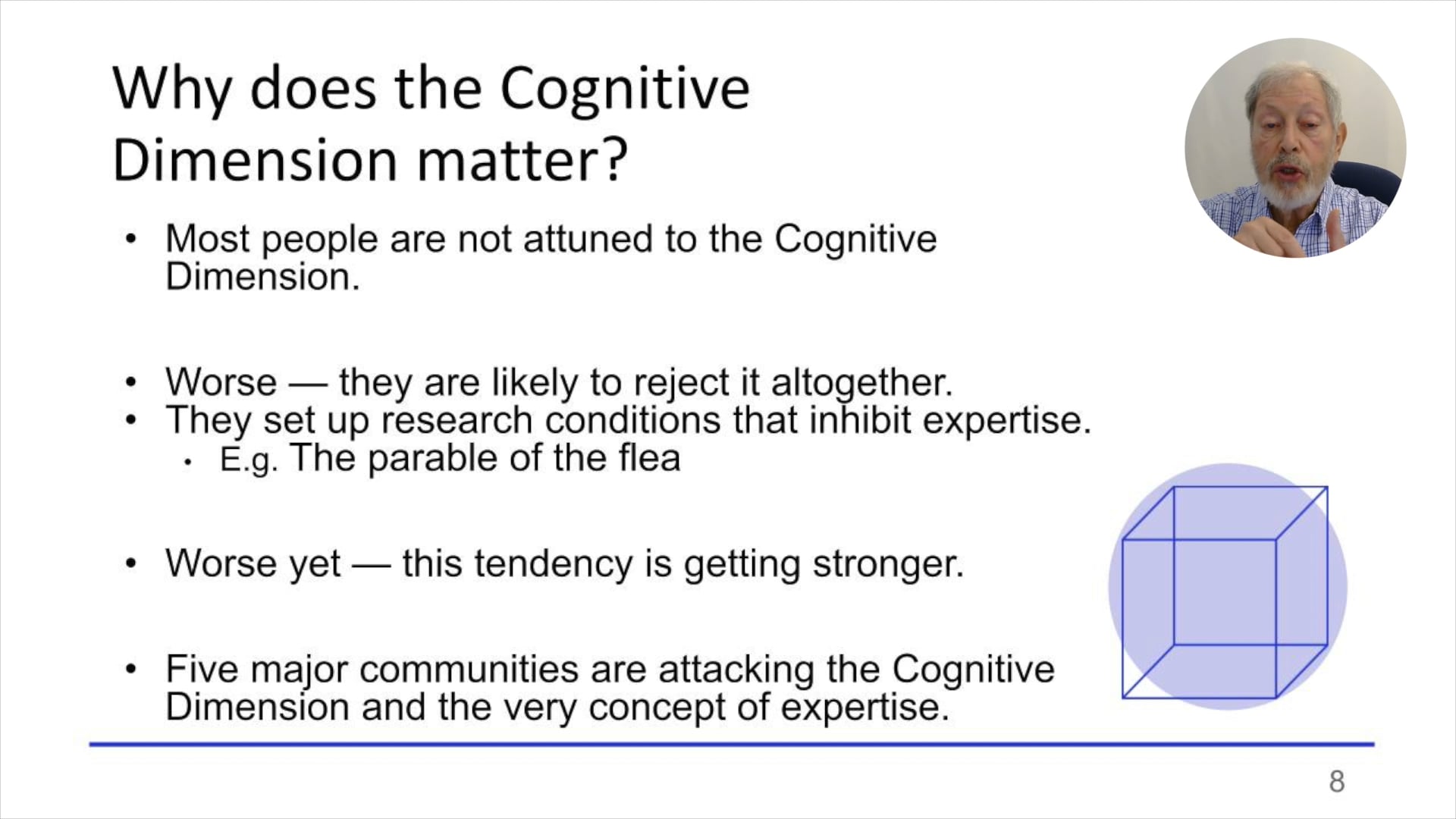
Lesson 2: Controlled Studies Inhibit Expertise
Discover why controlled lab experiments miss the mark in measuring true expertise. In this lesson, Dr. Klein explains how real-world context and experience shape effective decision-making, and why they’re often discounted in controlled studies.
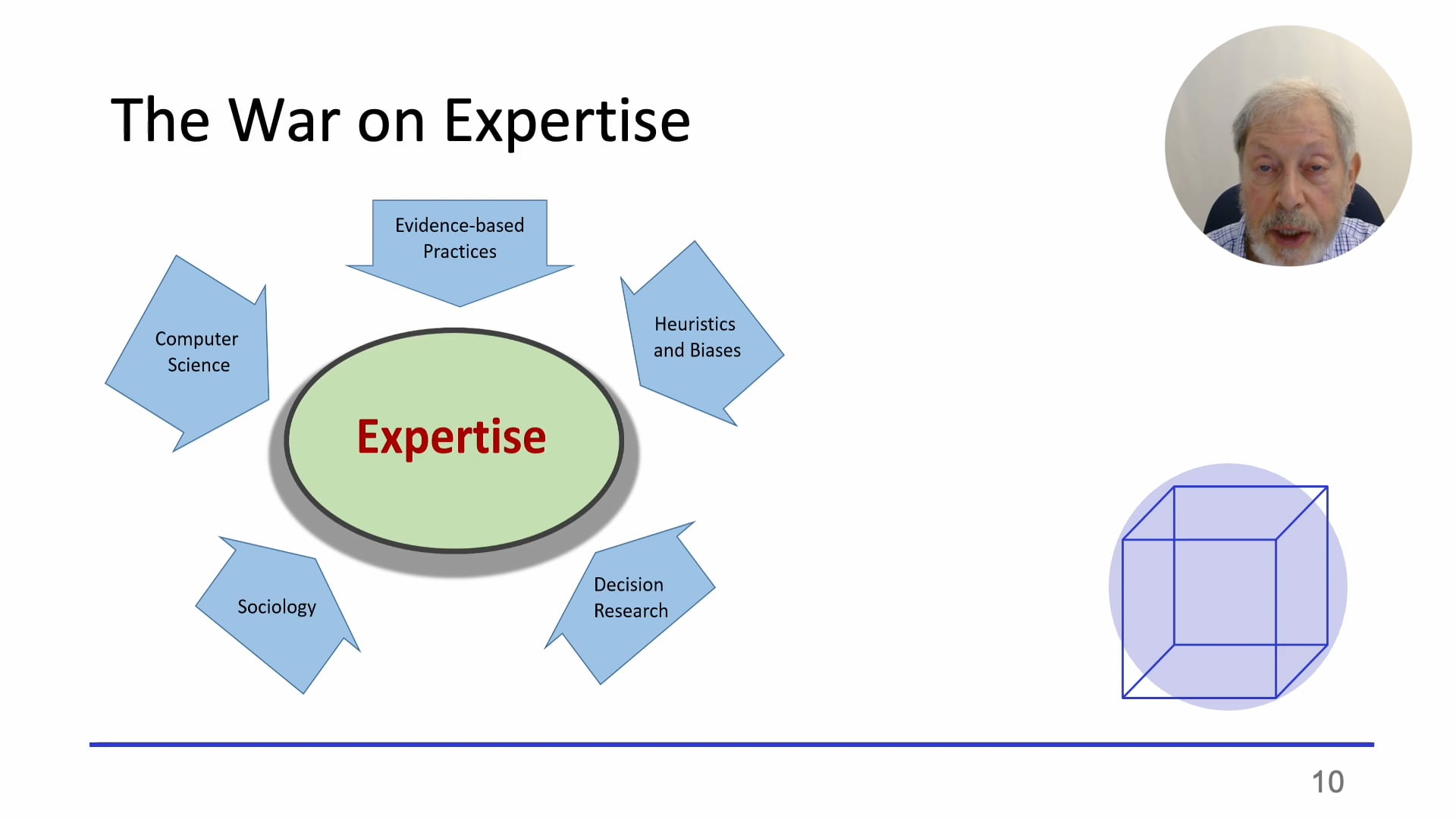
Lesson 3: The War on Expertise
Increase your awareness of the subtle forces eroding our trust in expertise. Understand the communities of practice that are challenging the role of expertise, and their specific critiques.
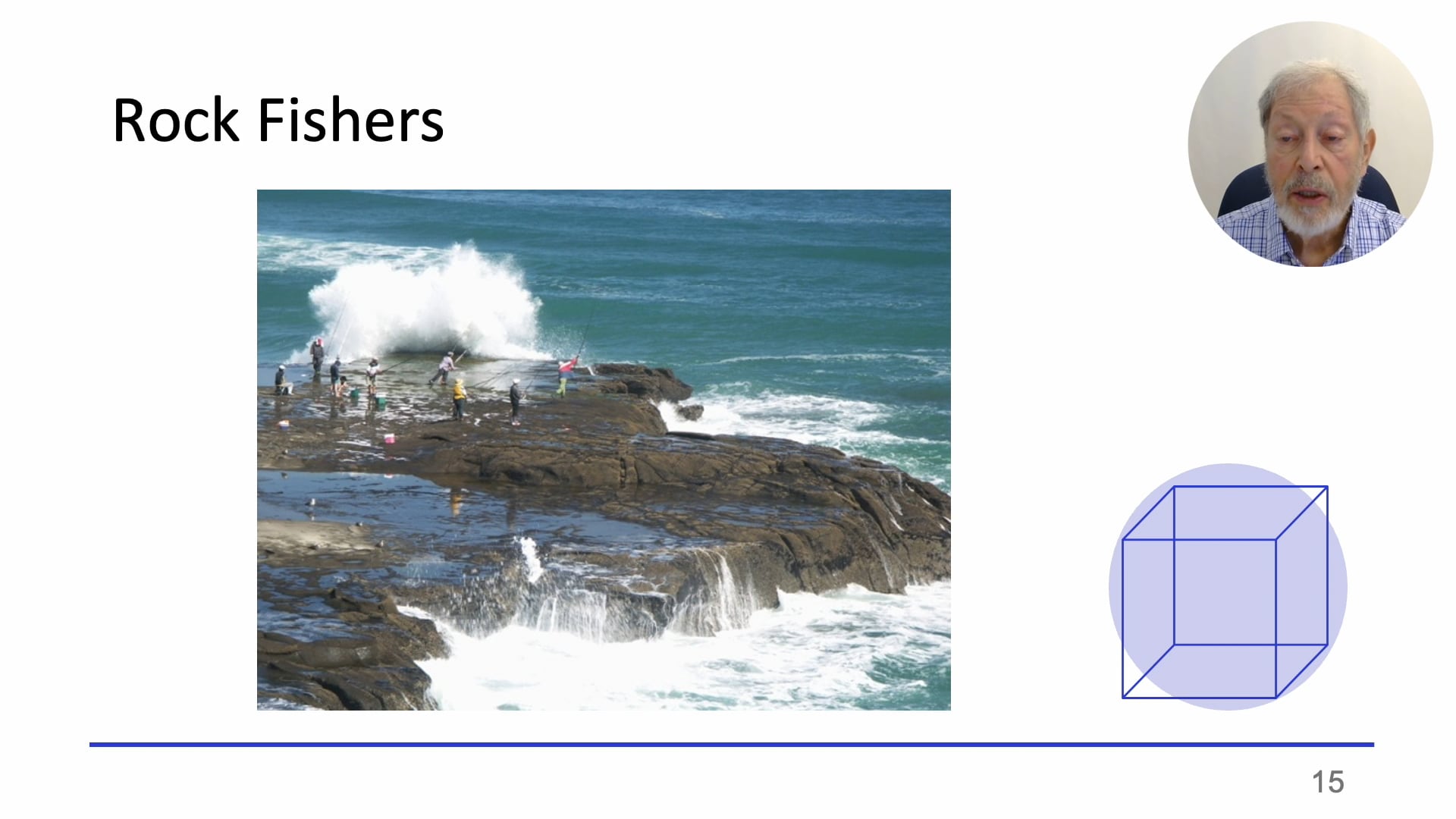
Lesson 4: Seeing the Invisible
Through real-world examples, learn how expertise goes beyond standard operating procedures, and depends on critical cognitive skills. Learn how these skills and insights help experts make life-saving decisions, even in unpredictable and risky situations.
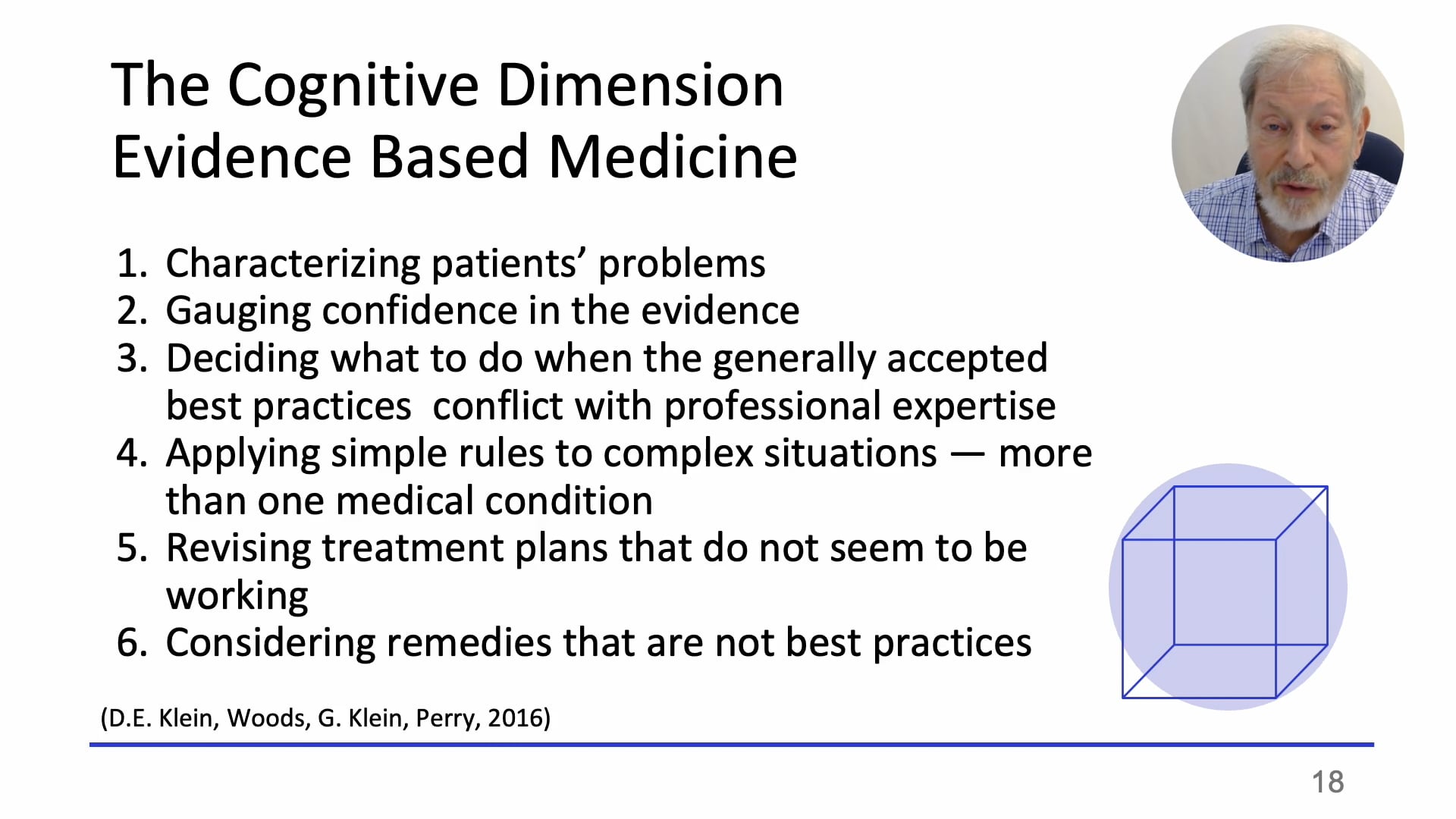
Lesson 5: Is It Safe to Rely Solely on Evidence-Based Data?
This lesson examines why evidence-based guidelines aren’t enough in complex medical cases and how experts use cognitive skills to fill in the gaps. Dr. Klein identifies six key challenges medical professionals face, including how to interpret conflicting evidence and adapting treatments for unique patients.
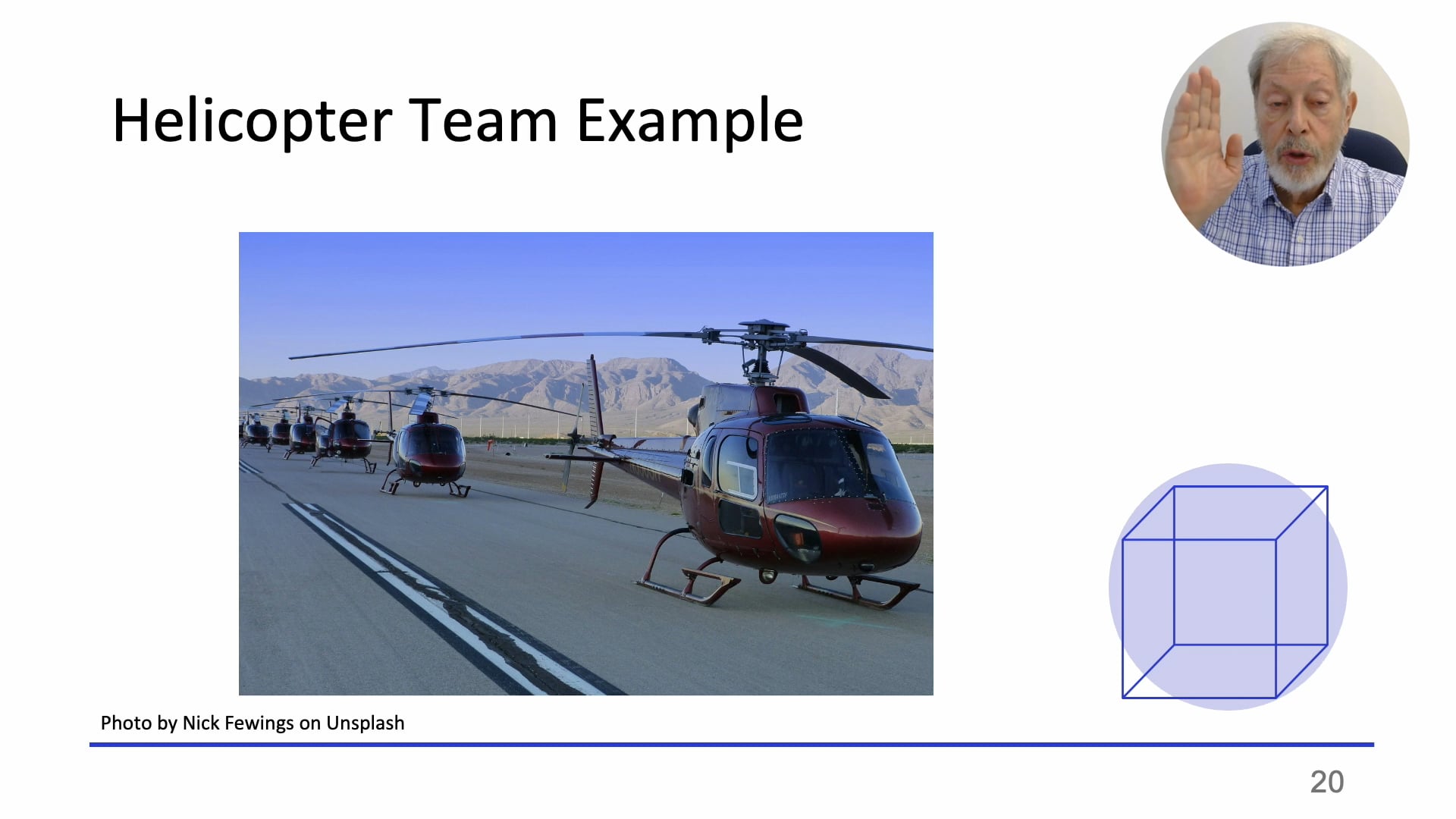
Lesson 6: Don’t Let the Data Mislead You
Data tells a story, but does it tell the whole story? Explore how over-reliance on surface-level analyses can change the narrative. Digging deeper to understand the Cognitive Dimension can enhance the insights gleaned from the data.
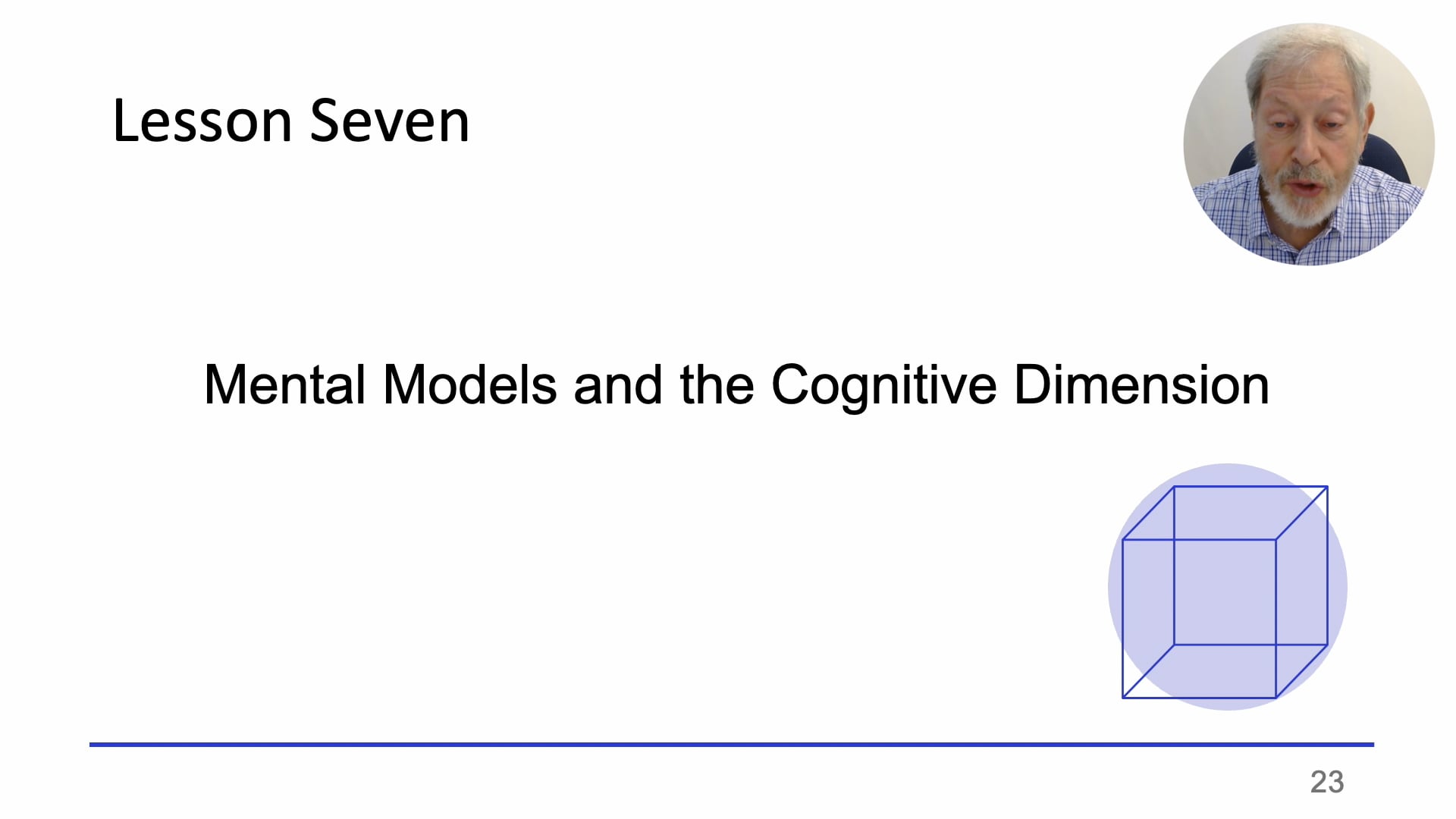
Lesson 7: Mental Models and the Cognitive Dimension
The Cognitive Dimension can help you develop richer mental models, improve decision making strategies, and uncover pathways to insights. Learn how experts understand system limitations, perform workarounds, anticipate user errors, and make discoveries by employing specific cognitive skills and strategies.
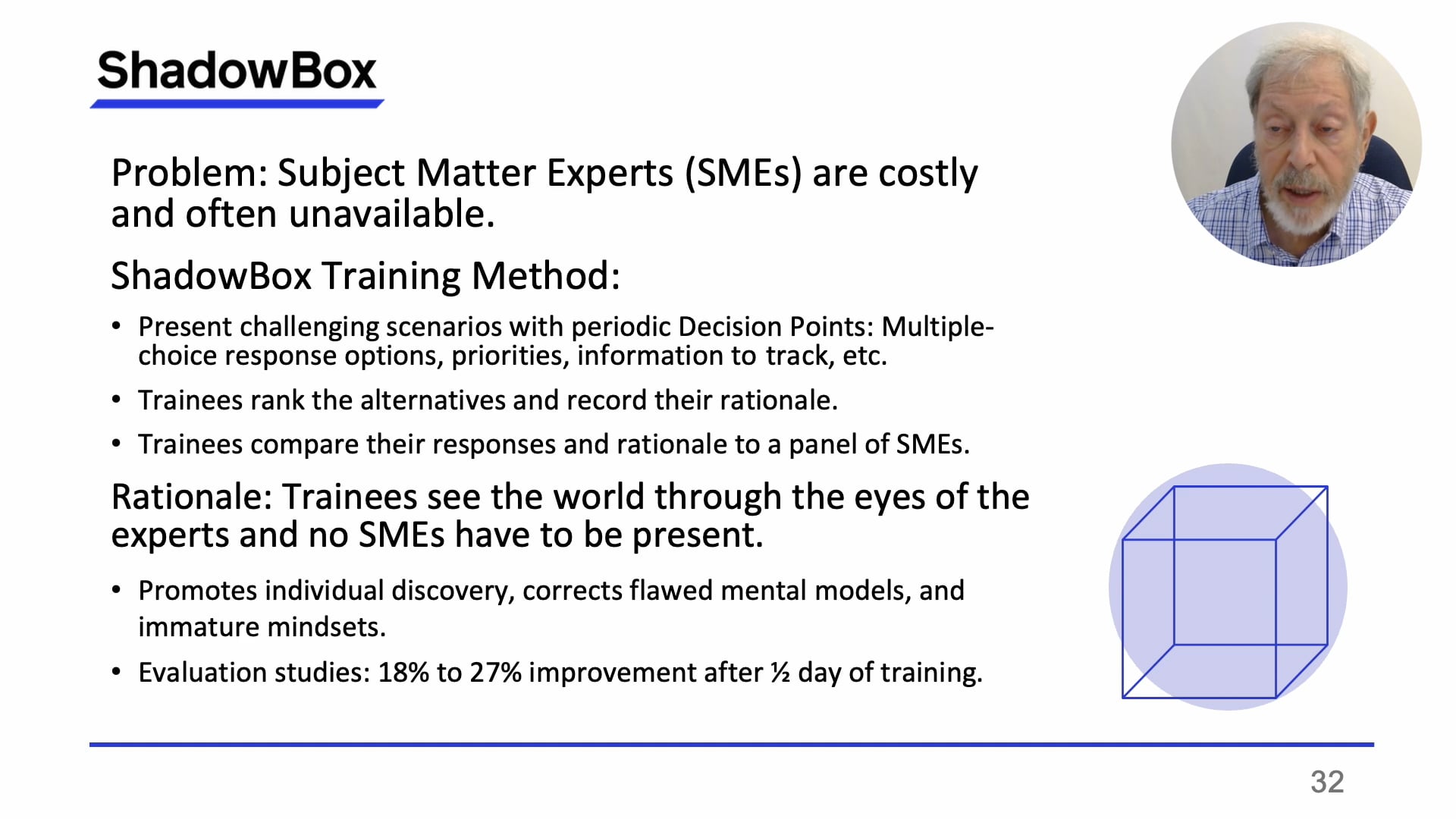
Lesson 8: Naturalistic Decision Making Tools for Discovering the Cognitive Dimension
Explore the growth of naturalistic decision making, and how tools like ShadowBox training and the AIQ toolkit can help uncover the cognitive dimension in complex tasks. This lesson reveals groundbreaking approaches that enhance decision support, accelerate expertise, and offer a human-centered alternative to traditional heuristics and biases.